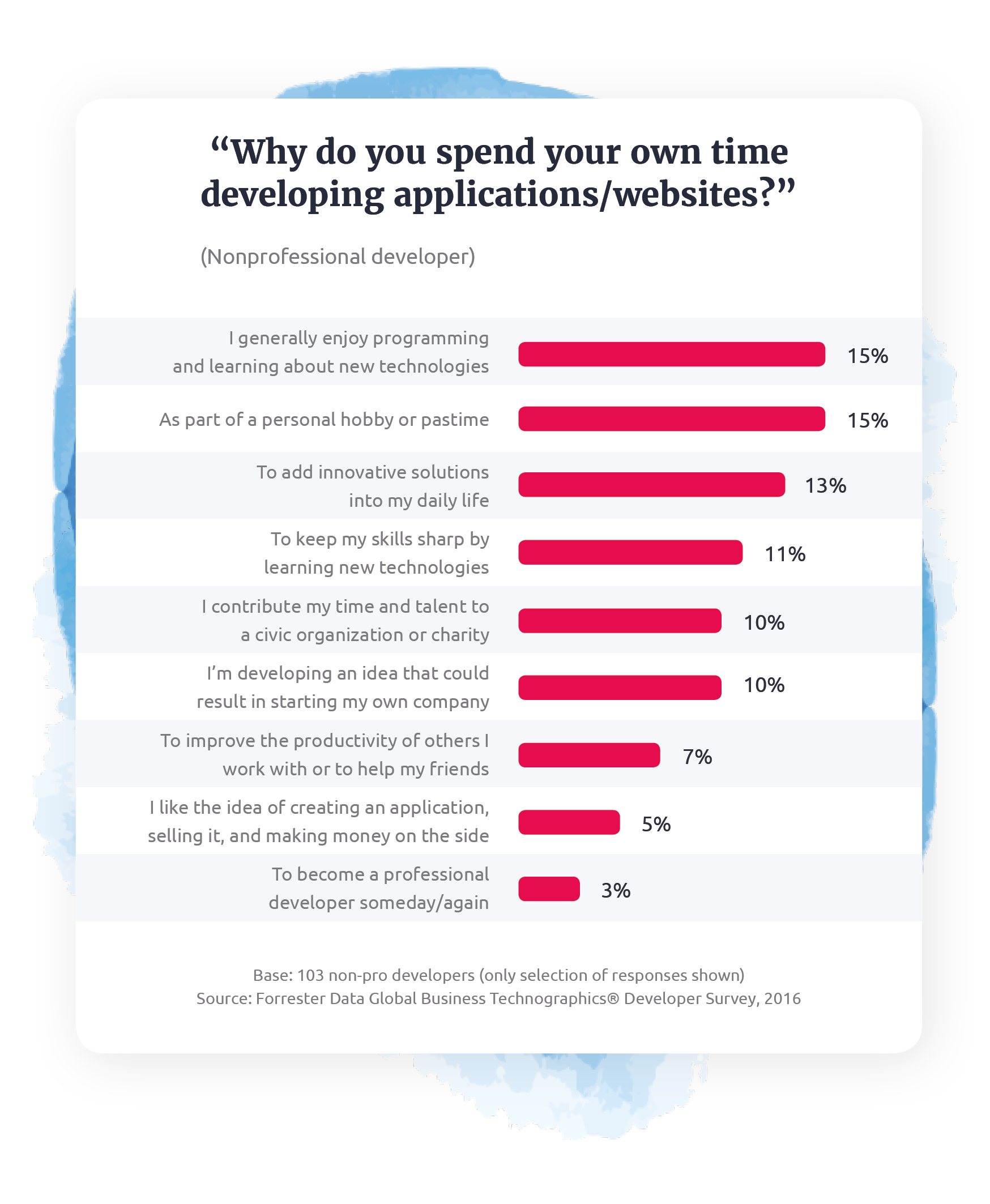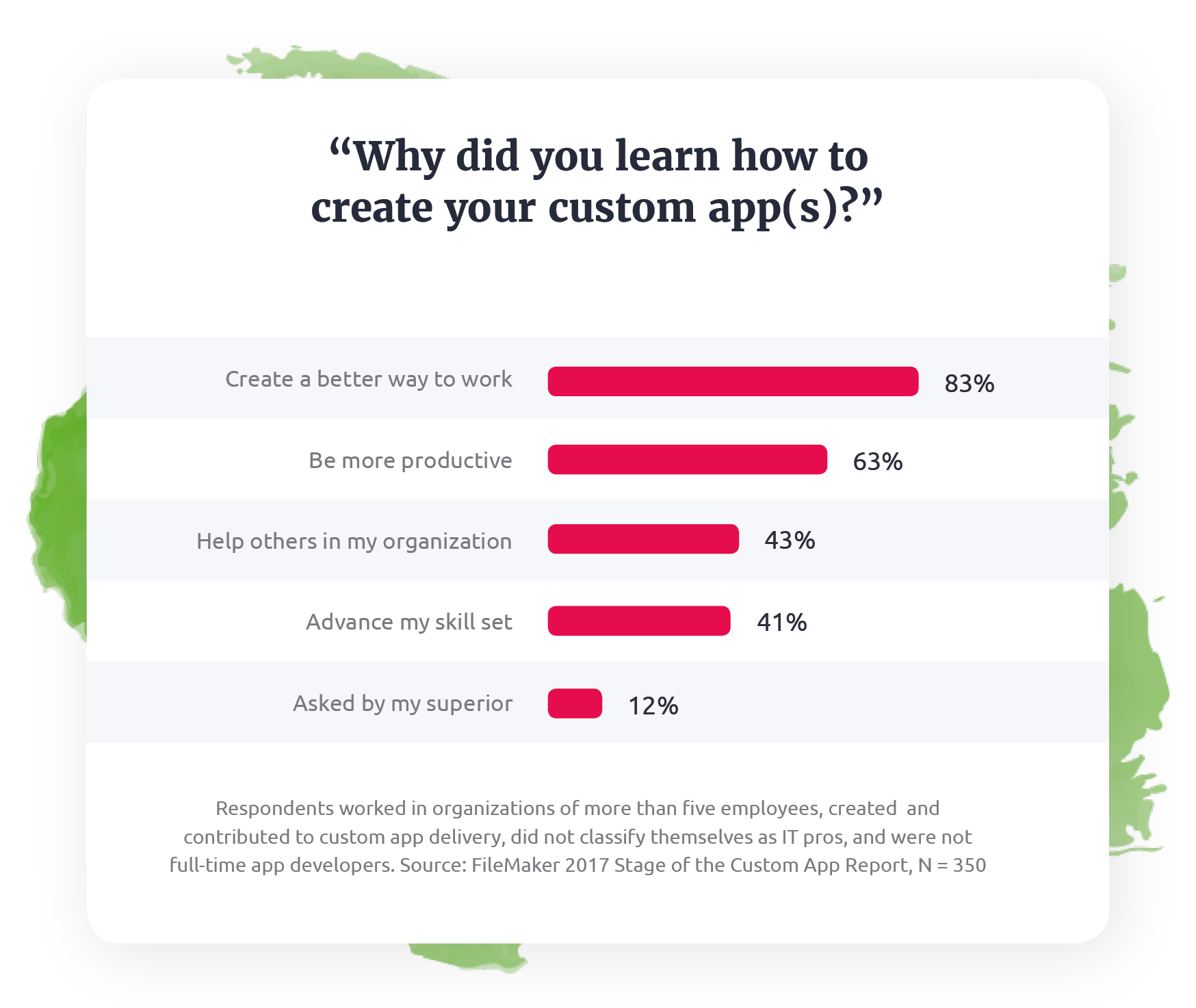
In a survey of 350 non-professional developers, Forrester research found that a significant portion of employees were also contributing to custom application delivery, even when not considered to be IT professionals (How To Harness Citizen Developers To Expand Your AD&D Capacity, Forrester Research, Inc., April 19, 2017). Whether or not app development was part of these employees’ job descriptions didn’t stop them from seeking out these opportunities.
We’ve written a lot about the citizen developer, another term for a so-called non-professional developer. Who they are, how to find them, and how they can help organizations innovate better and faster. But what motivates them? What makes them tick?
Psychological research finds that people who are intrinsically motivated (that is, they want to do something because they enjoy it, or for personal improvement, but for no material gain) are often more productive than those who are primarily motivated by things like status or financial gains. Intrinsic motivation has the advantages of being more sustainable and long-lasting, because the interest in doing something for the sake of the activity itself is what gives fuel.
It turns out that as a group, non-professional developers are primarily intrinsically motivated. In the same survey, Forrester research asked non-professional developers, “Why do you spend your own time developing applications/websites?” Some of the most common responses included “I generally enjoy programming and learning about new technologies;” “As part of a personal hobby or pastime;” or “To add innovative solutions into my daily life.”

Only 5% of non-professional developers cited wanting to build an application to sell and make money on the side as motivation. Crazy as it may sound, the majority of “citizen developers” are the type of highly self-motivated individuals who proactively seek out opportunities to learn, grow, and contribute.
Seeking to get even deeper into the heart of the matter, Forrester also asked, “Why did you learn how to create your custom apps?” What makes non-traditional developers start to learn developing in the first place? Common responses were creating a better way to work, a desire to be more productive, and wanting to help others in the organization.

As these self-motivated team players are mentored and supported, their development skills will really take off. With the right tools and supervision, non-professional developers can continue to draw from their natural drive to learn and innovate, contributing more advanced applications that have higher business value and require greater skill.
I can't help but think too that high levels of intrinsic motivation have a hand in driving innovation in general. The same eager-to-learn spirit that drives people like citizen developers to branch out and take on new responsibilities must also link to a drive to seek out innovative solutions, and not shy away from new ideas. Deeper than any set of technical skills, that’s someone I’d want on my innovation team.
Check out our Meet Your Citizen Developer whitepaper for a more comprehensive guide on all things citizen developer!
